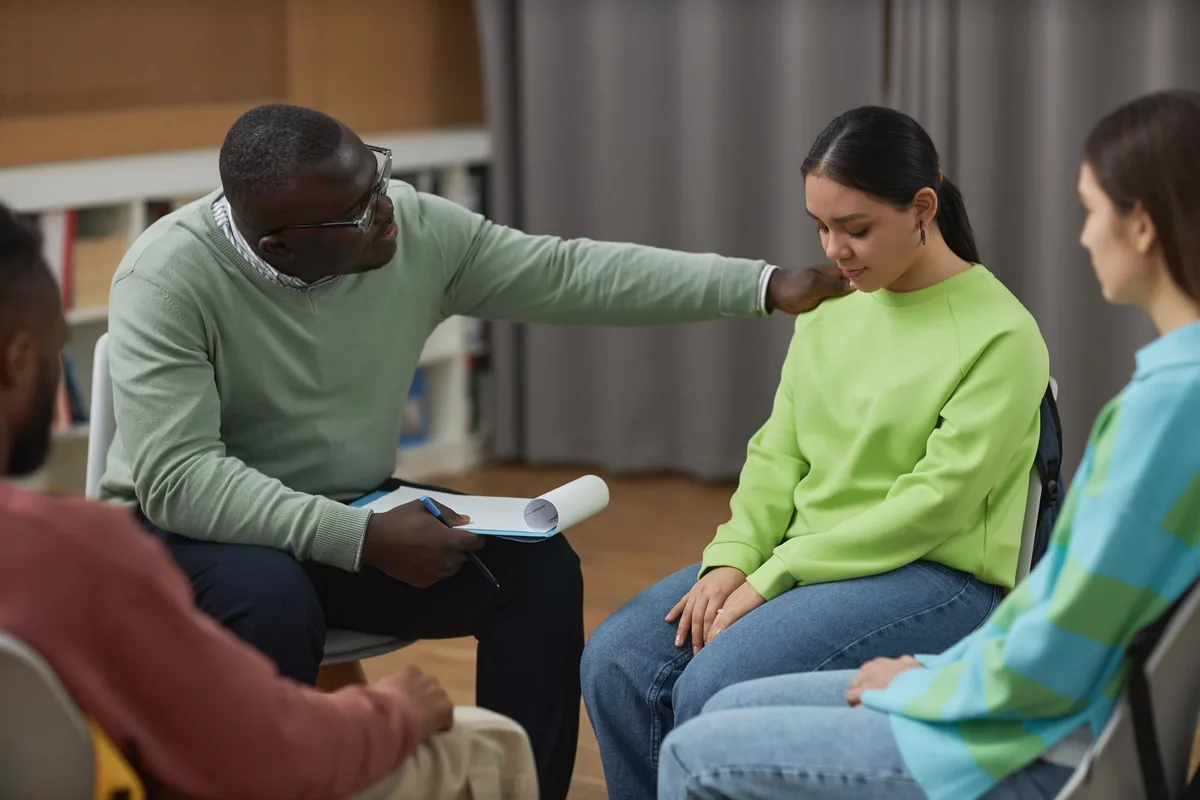24/7 Helpline:
(866) 899-221924/7 Helpline:
(866) 899-2219
Learn more about Benzo Rehab centers in Evangeline County
Benzo Rehab in Other Counties
Other Categories in Evangeline County

Other Insurance Options

Aetna

EmblemHealth

PHCS Network

Choice Care Network

Carleon

Meritain

BlueShield

Multiplan

Providence

Self-pay options

BHS | Behavioral Health Systems

Humana

Cigna

Sliding scale payment assistance

Horizon Healthcare Service

Magellan

Optima

Evernorth

CareFirst

Medical Mutual of Ohio

Compass Behavioral Center
Compass Behavioral Center is a private rehab located in Mamou, Louisiana. Compass Behavioral Center ...
















Ville Platte Behavioral Health Clinic
Ville Platte Behavioral Health Clinic by Acadiana Area Human Services District provides comprehensiv...











































